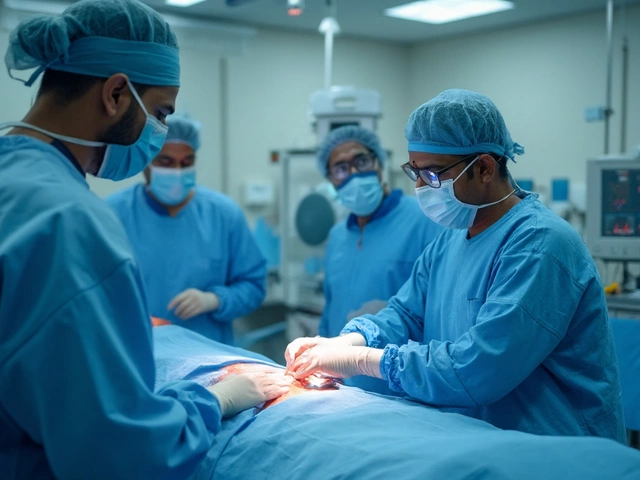There’s this buzz these days about dental implants being the gold standard for replacing teeth. Dentists say it, your WhatsApp groups discuss it, even my son Aarav’s friend’s mom recently got them, and she can’t stop smiling (literally). But here’s the thing—you might not hear as much about the folks for whom dental implants just aren’t a good idea. The reason? We tend to focus on success stories. But imagine discovering halfway through the process that you should never have started in the first place. Scary, right? So, let’s dig into who should think twice—or not at all—before jumping on the implant bandwagon.
Understanding Dental Implants—And Why Not Everyone Is a Candidate
Dental implants are titanium screws that sit in your jawbone, acting as artificial roots. Crowns or bridges pop on top, and voila—new teeth. Sounds simple, but your body isn’t always on board with this plan. The jawbone has to fuse with that titanium; the gums need to heal cleanly. This healing process, called osseointegration, is kind of like two surfaces melting and joining together. If anything gets in the way—poor bone quality, gum issues, certain diseases—the success rate takes a nose-dive.
Statistics show that while dental implants have a 95% success rate for healthy people, the picture changes for those with underlying conditions. The biggest factor? Bone health. If your jawbone has shrunk due to years of missing teeth or advanced gum disease, there simply isn’t enough base for the implant to take root. If you already struggle with things healing slowly—maybe because of diabetes or you smoke a pack a day—then the risk of failure skyrockets.
Age? Not really a big deal. You’ll find 80-year-olds with dazzling implants. But certain lifestyle habits or health profiles are deal breakers. For example, active gum disease can ruin anything your dentist puts in your mouth. It’s not just about the teeth—it’s about every part of your mouth working together. Even some everyday medications, like steroids or bisphosphonates (often used for osteoporosis), reduce bone’s ability to heal. I once spoke to a neighbor who didn’t realize her osteoporosis meds could make implant surgery dangerous—her dentist caught it just in time.
Key Reasons Why You Should Not Get Dental Implants
If your dentist seems a bit too enthusiastic about implants without asking detailed questions about your health, consider that a red flag. Who, specifically, should steer clear?
- Gum disease (periodontitis). If it’s active, you’re basically building on sand. Any infection here messes with bone healing and risks early implant loss.
- Uncontrolled diabetes. High blood sugar slows down healing and multiplies infection risk. One recent study from AIIMS (2023) found a doubled failure rate for diabetics with poor sugar control.
- Severe bone loss in the jaw. If your dentist says there’s not enough bone, take it seriously. Bone grafts are an option, but even then, success isn’t guaranteed.
- Autoimmune conditions. Think rheumatoid arthritis, lupus, or people on long-term immunosuppressants. Your body’s healing ability is dialed down, and even mild infections can spiral.
- Heavy smokers. Cigarettes choke off blood supply to the gums, leading to poor healing. Studies show a 15-20% higher chance of implant failure for smokers.
- History of head and neck radiation for cancer. Radiation can kill healthy cells in the jaw and gums, making healing after implants tough—or nearly impossible.
- Alcohol and drug dependency. Not only does this slow healing, but missed appointments and poor oral care add up to a recipe for trouble.
- Very young patients (jaw still growing). Implants don’t “grow” with you. That means kids and teens are out, usually until at least age 18-21, depending on development.
- Bruxism (teeth grinding). The extra pressure can loosen or damage implants over time, though a nightguard can sometimes help.
- Severe allergies—especially to metals. While rare, some people genuinely react badly to titanium. If you have a known metal allergy, talk to your dentist about alternatives.
Being transparent with your dentist is crucial. Don’t hide anything—sometimes that “one small issue” you think is unrelated could make all the difference in your mouth’s healing superpowers. And if you’re taking new medicines, always double-check if they mess with bone growth or healing.

Risks of Dental Implants If You’re Not the Right Candidate
Trying to force an implant into a body that isn’t ready is like trying to plant a rose bush in dry, rocky ground. It might sprout for a while, but sooner or later, things go south.
Here’s what happens when implants go wrong:
- Implant failure: The most obvious risk. The implant just doesn’t fuse, or “osseointegrate,” with the bone. That’s a wasted surgery, wasted money, and usually a lot of pain.
- Peri-implantitis: This is a scary infection of the tissue and bone around the implant. It’s like super-gum disease, and it can eat away at your jawbone. In India, peri-implantitis is found in up to 20% of patients with poor oral hygiene after implants.
- Nerve damage: If the bone’s too thin or the nerve runs close by, one wrong move during surgery can lead to permanent tingling or loss of feeling. Super rare, but it does happen. My brother’s friend had this problem—his lower lip felt numb for months.
- Sinus complications: For upper jaw implants, there’s a risk of pushing into the sinus cavity if there’s not enough bone. That can cause frequent sinus infections and headaches.
- Loose implants: Grinding and clenching teeth can stress the implant, making it wobbly. It’s almost impossible to fix without starting over.
- Implant rejection: True “allergy” to titanium is rare but real. Redness, swelling, or pain that worsens over time may signal rejection.
Impressive as dental science is, it isn’t perfect. Once you lose bone or gum tissue to a failed implant, getting back to the baseline isn’t easy. Most complications could have been avoided if doctors and patients hit the pause button and asked, “Is this the right choice for me?”
Safer Alternatives and What to Consider Before Deciding
If you fall into one of the risky groups, don’t stress—there are still ways to get back your smile. Here are some options:
- Removable partial dentures: Lightweight, cleanable, and affordable. They don’t look quite as real, but they save you surgery and big bills. Modern ones are way better than the old-school ‘chompy’ plates our grandparents had.
- Dental bridges: These use the neighboring teeth as support. No jawbone drilling, just capping and joining the fake tooth to the real ones on each side. Downside? The good teeth need to be reshaped.
- Flexible options: Some new-age dentures use softer materials that are easier to adjust and mold to odd jaw shapes. They don’t need metal clamps or adhesives.
If you’re dead set on dental implants, here’s a quick checklist:
- Get a full mouth checkup—not just teeth, but gums, jaw, and overall health.
- Share every detail about medicines, diseases, or allergies you have, even if it feels unrelated.
- Ask if your bone is strong enough. If your dentist suggests bone grafting, weigh the risks and extra healing time.
- Keep diabetes, high blood pressure, and any other chronic conditions perfectly controlled before surgery.
- If you smoke, consider quitting—at least for a few months before and after surgery. The improvement in healing is huge.
- If you tend to clench or grind your teeth, bring it up. A custom mouthguard can help.
Dental implants promise a new start, but they’re not for everyone. There’s no shame in choosing a different path if it means better health, comfort, and fewer sleepless nights. If your dentist pushes hard without listening, get a second opinion. Your smile—like the rest of you—deserves the safest, smartest solutions around.

 Will I Gain Weight After Stopping Metformin? What Really Happens
Will I Gain Weight After Stopping Metformin? What Really Happens
 Is Medical Tourism Safe in Mexico? What You Need to Know Before You Go
Is Medical Tourism Safe in Mexico? What You Need to Know Before You Go
 How Long Does Heart Surgery Take? Timing, Tips, and What to Expect
How Long Does Heart Surgery Take? Timing, Tips, and What to Expect
 Herbal Supplements: What Are the 3 Main Supplements You Should Know?
Herbal Supplements: What Are the 3 Main Supplements You Should Know?
 Herbs You Should Never Mix Together
Herbs You Should Never Mix Together